Da Nang's market potential of elderly service industry
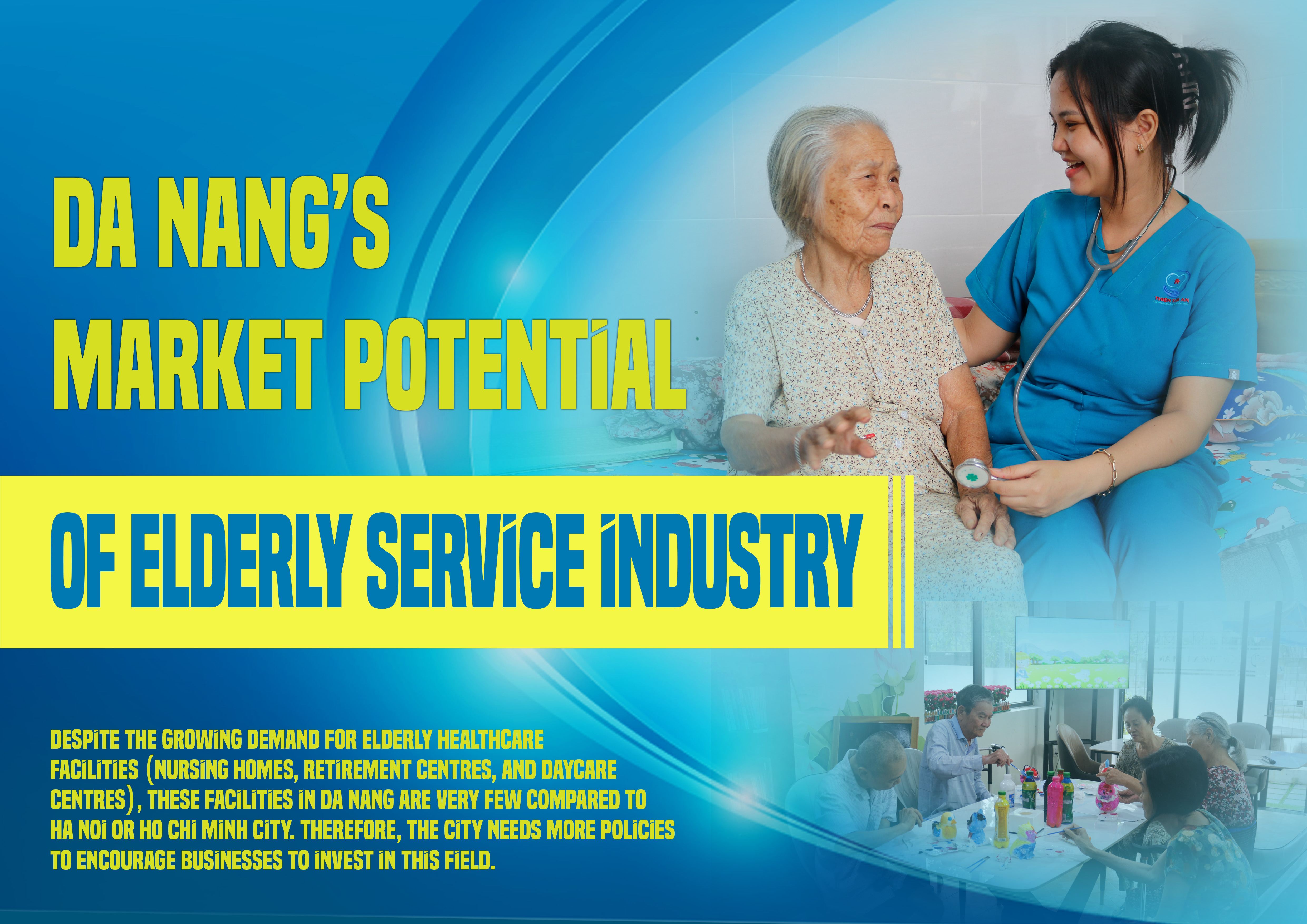 |
Despite the growing demand for elderly healthcare facilities (nursing homes, retirement centres, and daycare centres), these facilities in Da Nang are very few compared to Ha Noi or Ho Chi Minh City. Therefore, the city needs more policies to encourage businesses to invest in this field.
 |
Mrs. N.T.C, 60, residing in Thuan Phuoc Ward, Son Tra District, lives with her husband, a 1/4-class war invalid, and her 85-year-old birth mother. Since November 2023, Mrs. C has suffered a hip injury and cannot do heavy work. Therefore, taking care of her husband and her mother has suddenly become more difficult than ever.
Mrs. C has difficulty hiring caregivers for the elderly because they lack expertise and skills in caring for the elderly, and their salary requirements are too high.
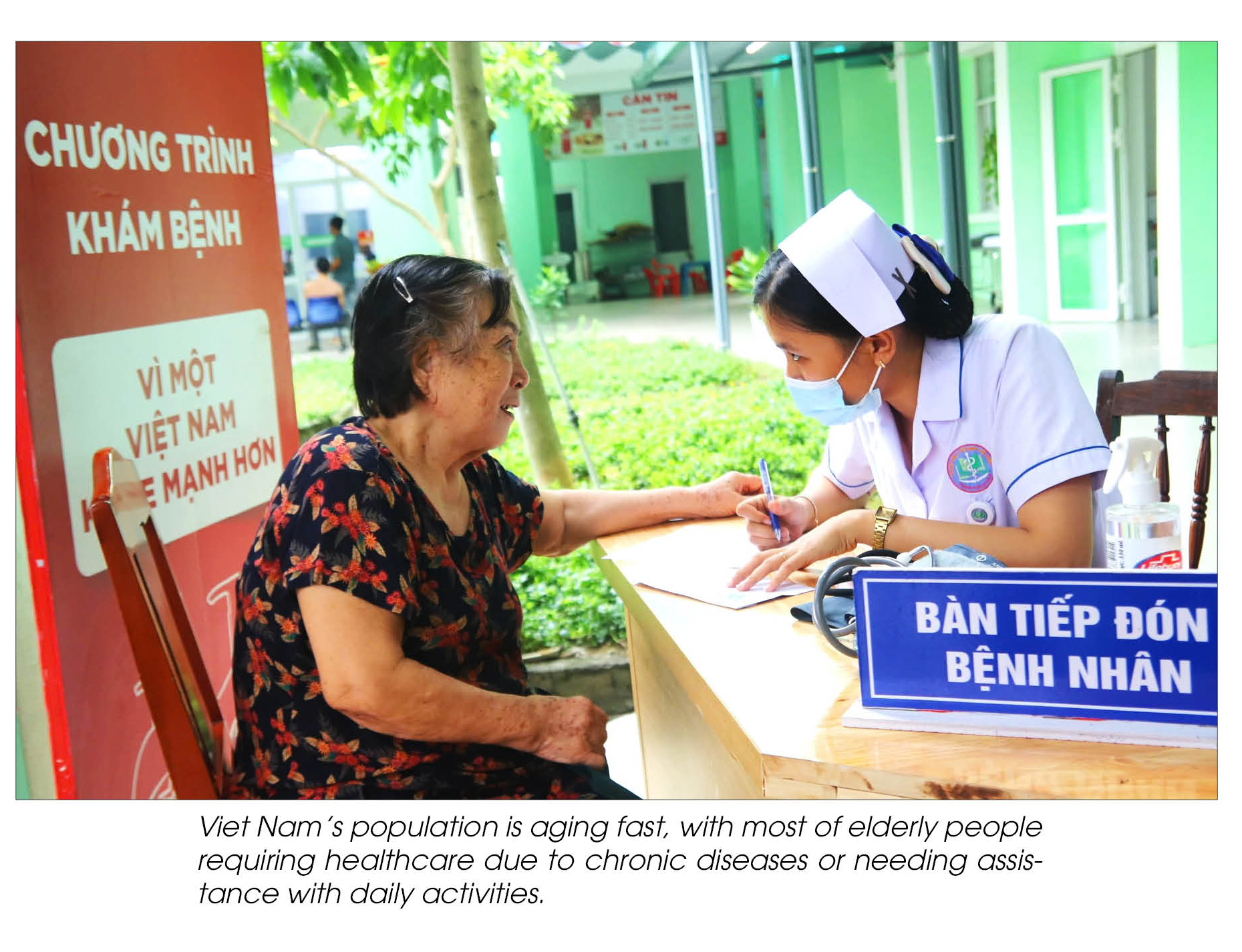 |
40-year-old T.M, Mrs. C’s daughter, due to the nature of her work, does not have much time to support the care of the two abovementioned people, and can only provide financial support.
She hopes that the city will develop services and facilities to care for the elderly on a daily or monthly basis, along with models to help busy people take good care of their elderly relatives.
 |
Her husband passed away and her children have their own families, at the age of 60, Mrs. T.N.H, who is currently living alone in Hai Chau District, plans to stay in a nursing home within the next 1-2 years. She said that she has considered and prepared for this plan for a long time.
“Due to my old age and weak health, I have someone to take care of me and monitor my health every day, and someone of the same age to talk to reduce boredom when going to a nursing home. This decision is good for me and reduces the burden on my children,” said Mrs. H.
Currently, many people are in need of healthcare services for the elderly. According to statistics from the General Department of Population of Viet Nam, Viet Nam's population is aging fast, with the proportion of the elderly aged 60 and over accounting for about 12% of the population (in 2023) and is expected to continue to rise in the coming years. Viet Nam is forecast to be one of the fastest aging countries in the world and will begin the aging population period when the proportion of elderly people will go up 20.21% in 2038.
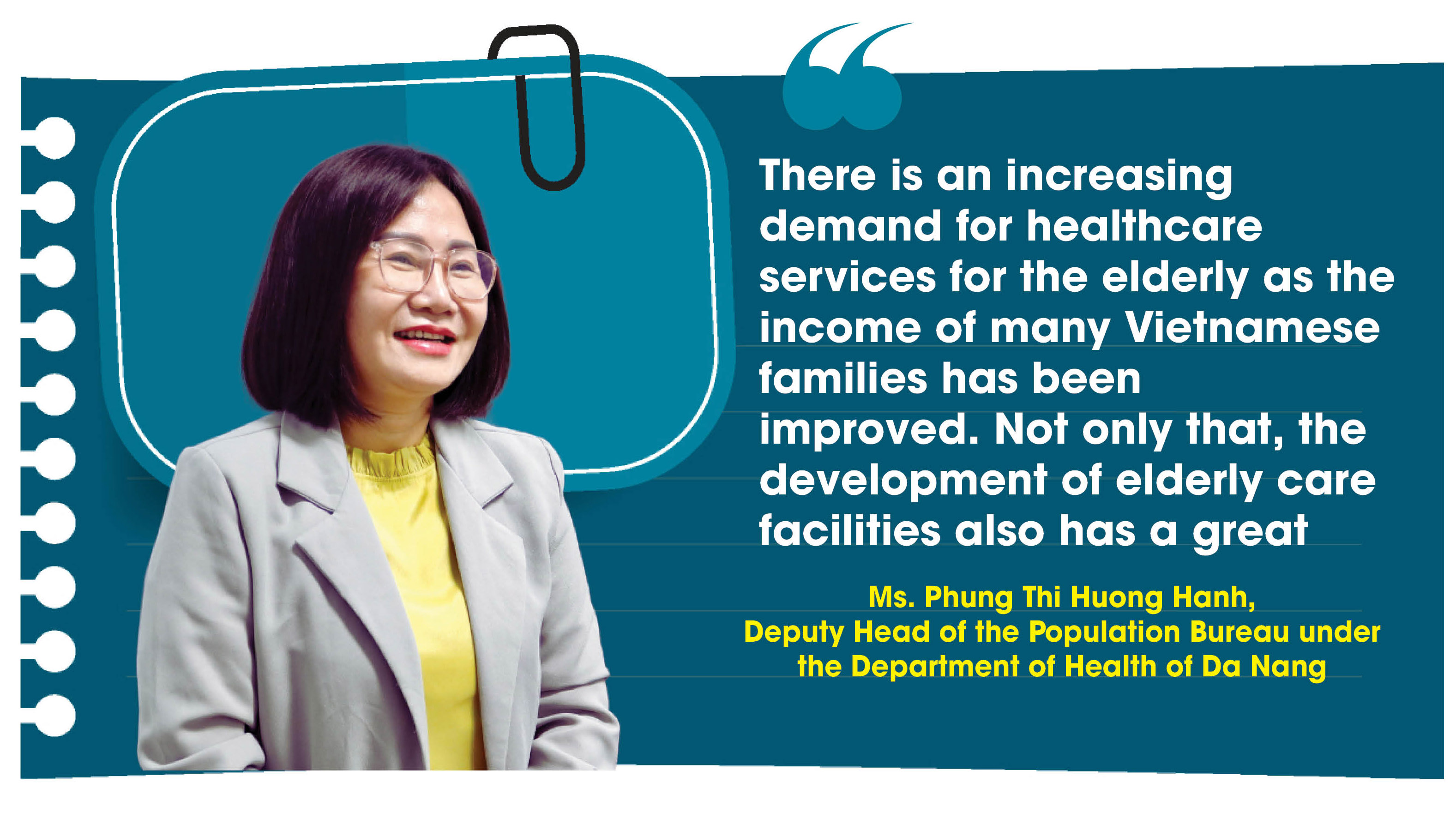 |
In Da Nang, the elderly people makes up about 12.2% of the city's population (based on data recorded as of October 1, 2024 by the Population Bureau under the Da Nang Department of Health), and most of them need health care due to chronic diseases or need support for daily activities. Notably, the rate of elderly people living alone is growing.
According to Master degree’s holder Phung Thi Huong Hanh - Deputy Head of the Population Bureau, currently, the young workforce is busy with many economic and social activities, which limits the time available for caring for the elderly. Elderly people, when left alone at home, without a social environment, are prone to physical and mental health problems.
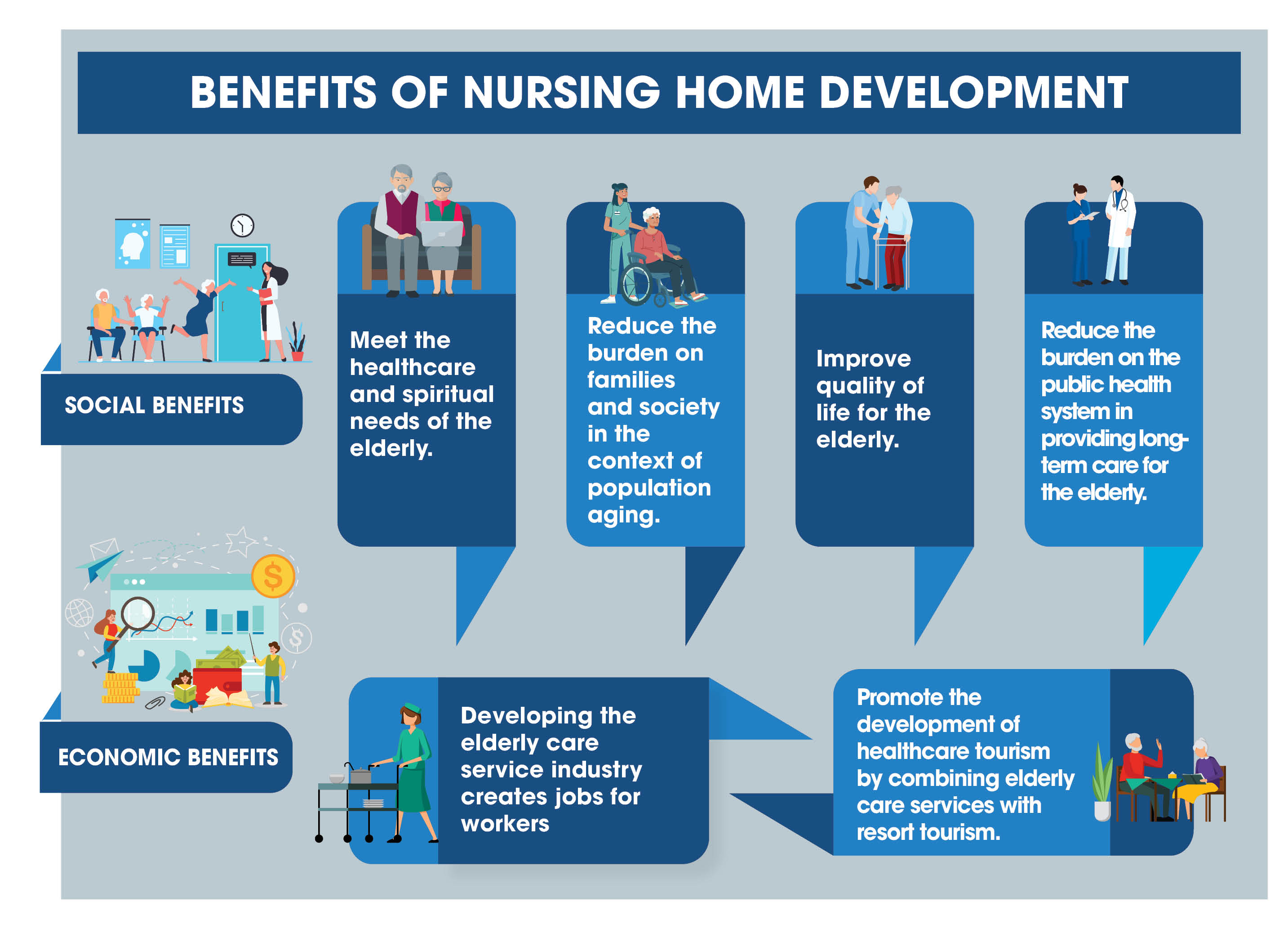 |
In addition, the difference in lifestyle between generations makes living together easily lead to discord and conflict in the family. At the same time, the income of the elderly in recent years and in the future will tend to be higher (pension + accumulated assets), which helps them not to depend too much on their children. Along with that, there is an increasing number of Vietnamese people living and working abroad returning to the country to find a place to retire. The mechanical population growth when people from many places come to Da Nang to live and work also results in the growing number of elderly people in the city.
Although the city has made some investments in social welfare, elderly care services have not yet met actual needs. Currently, the city has only one public comprehensive social protection facility (caring for 114 lonely elderly people without shelter for free and 9 elderly people with voluntary fees). Additionally, there are two non-public facilities (one free family home and one paid nursing home). This is a rather modest number of elderly care facilities compared to other localities such as Ha Noi or Ho Chi Minh City.
Therefore, Da Nang is in dire need of solutions to care for and support the elderly, including the development of facilities for the elderly (nursing homes, daycare centres) - where the elderly can live, work, receive healthcare, and improve their spiritual life, thereby helping them live happily and healthily.
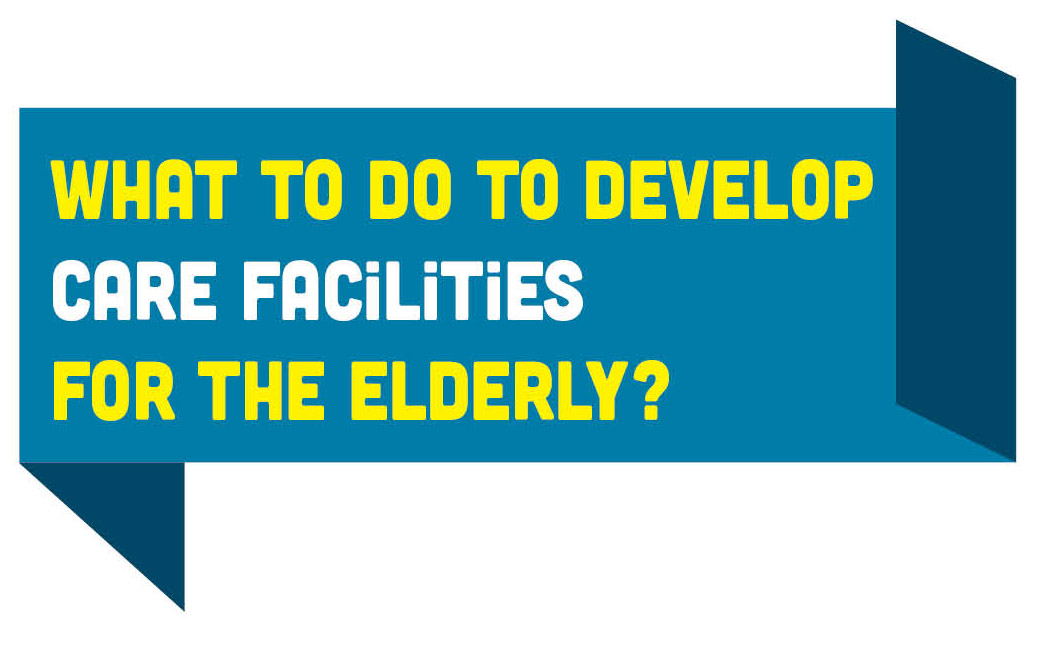 |
Currently, 114 elderly people, including 73 female and 41 male ones, are being cared for free at the Da Nang Social Protection Centre in Lien Chieu District. Since its implementation of the Voluntary Elderly Care Project (with fees) in early 2022, the centre has received a total of 24 people. The monthly service fee is VND 6,546,000 for those who can take care of themselves and VND 10,049,000 for those who are unable to take care of themselves.
According to Deputy Director of the Da Nang Social Protection Centre Tran Dinh Sang, the centre's infrastructure can receive and care for up to 50 elderly people under a voluntary service model with fees. Although the centre has advertised its service, it has not attracted many elderly people. Currently, the centre is only caring for 9 people under a voluntary service model with fees.
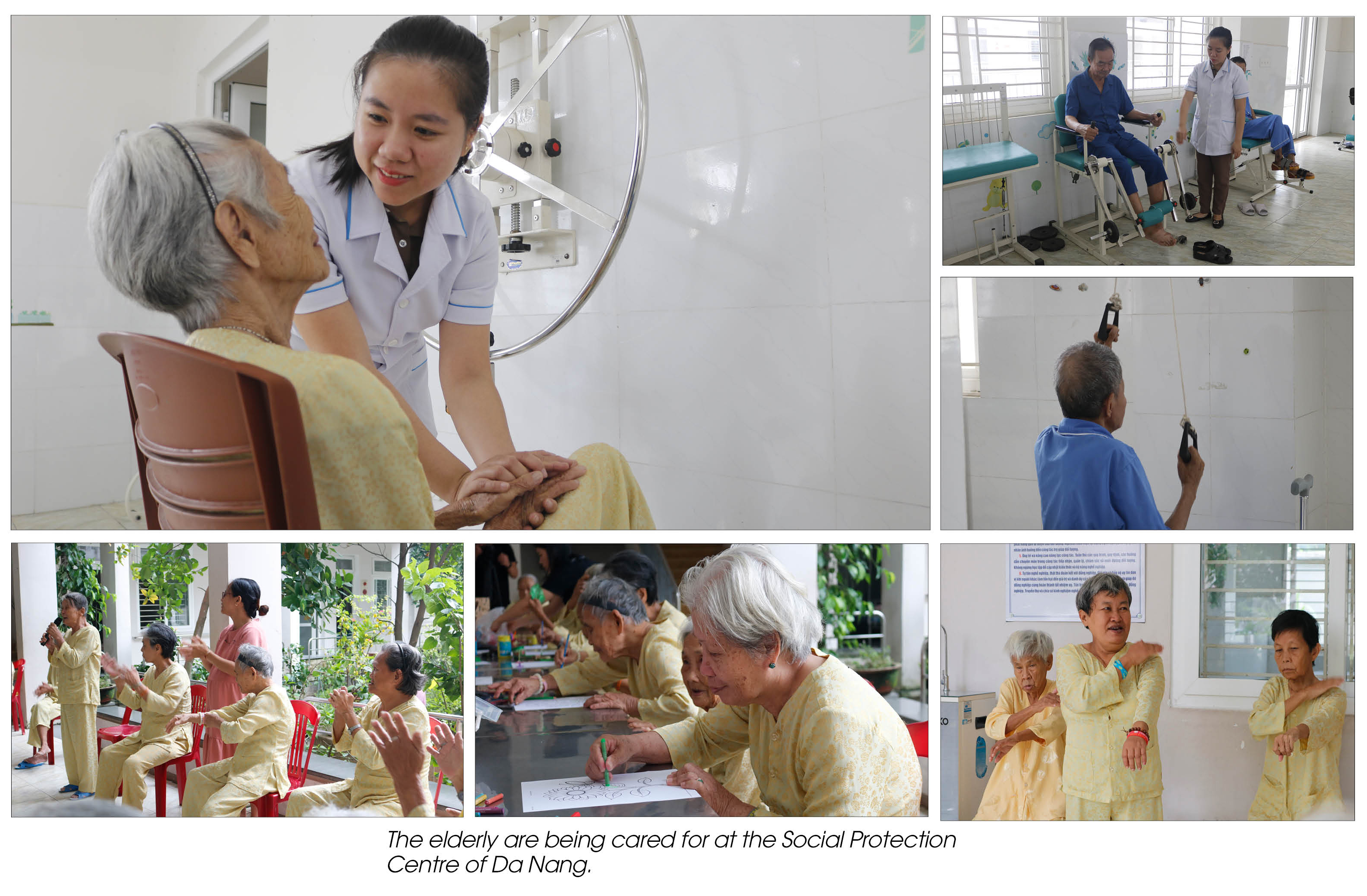 |
“To attract more elderly people, in the coming time, the centre will renovate the landscape, promote and advertise voluntary services for the elderly, diversify activities to improve spiritual life, and professionalise the team of elderly care staff,” said Mr. Sang.
However, old Vietnamese people often want to live with their children and grandchildren, so many people still hold the notion that sending their parents or elderly relatives to nursing homes is unfilial. This makes many families, despite difficulties in time, finances or caregiving capacity, still hesitate to access professional services because they are afraid of negative evaluation from the community, leading to modest demand and number of elderly people sent to these facilities.
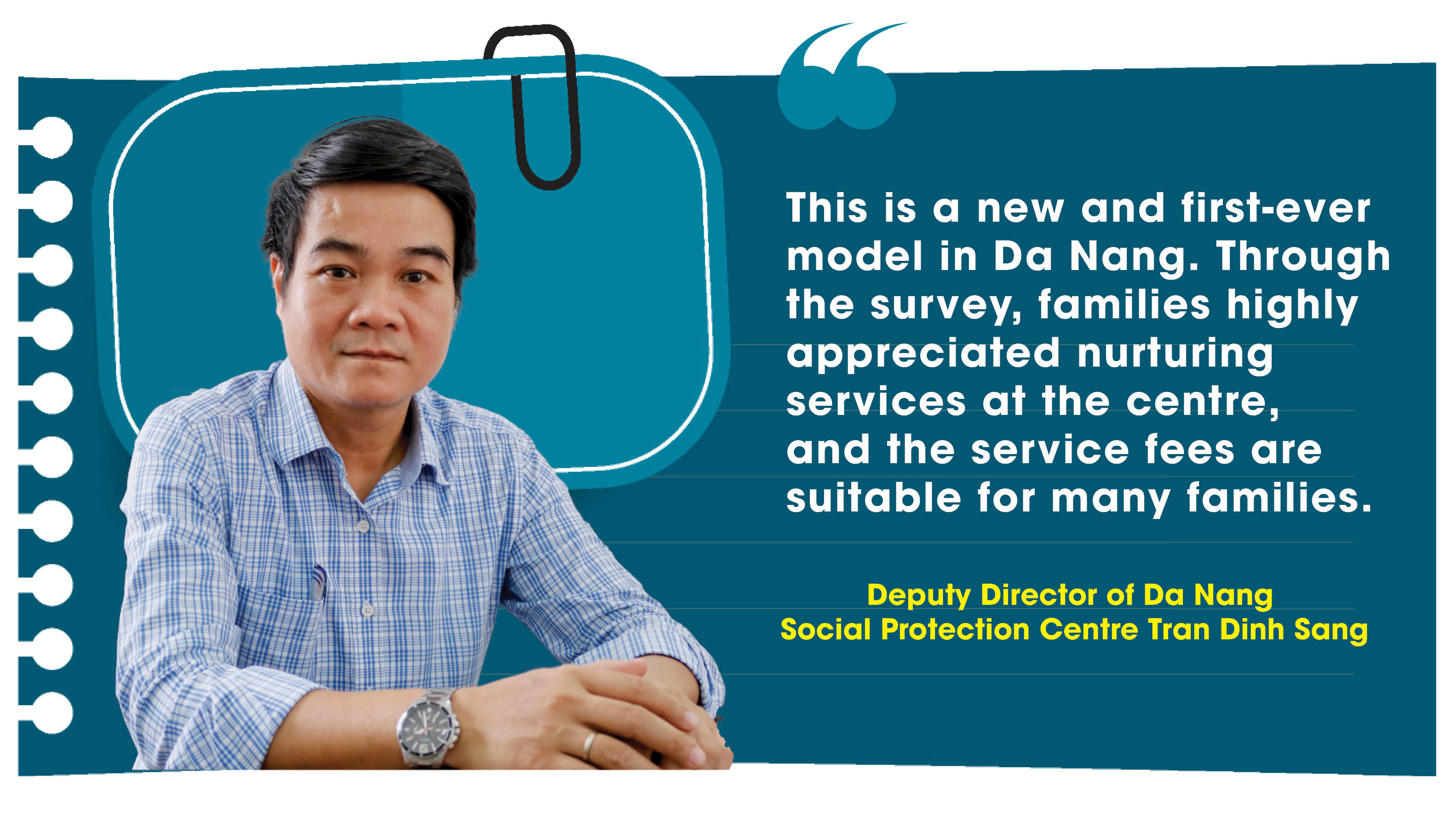 |
Moreover, the number of elderly people brought in for care has difficulty moving around, and is often sick, so in the past, the center's activities only focused on health care and rehabilitation services. Therefore, there were not many activities to improve spiritual lives, so the centre was not attractive to elderly people.
Since its operation in April 2022, the Thien Tam Nursing Centre, located in Ngu Hanh Son District, under the Thien Tam An Healthcare Company Limited, is currently caring for 16 elderly people. The private nursing home aims to offer high-end nursing services for customers with economic conditions.
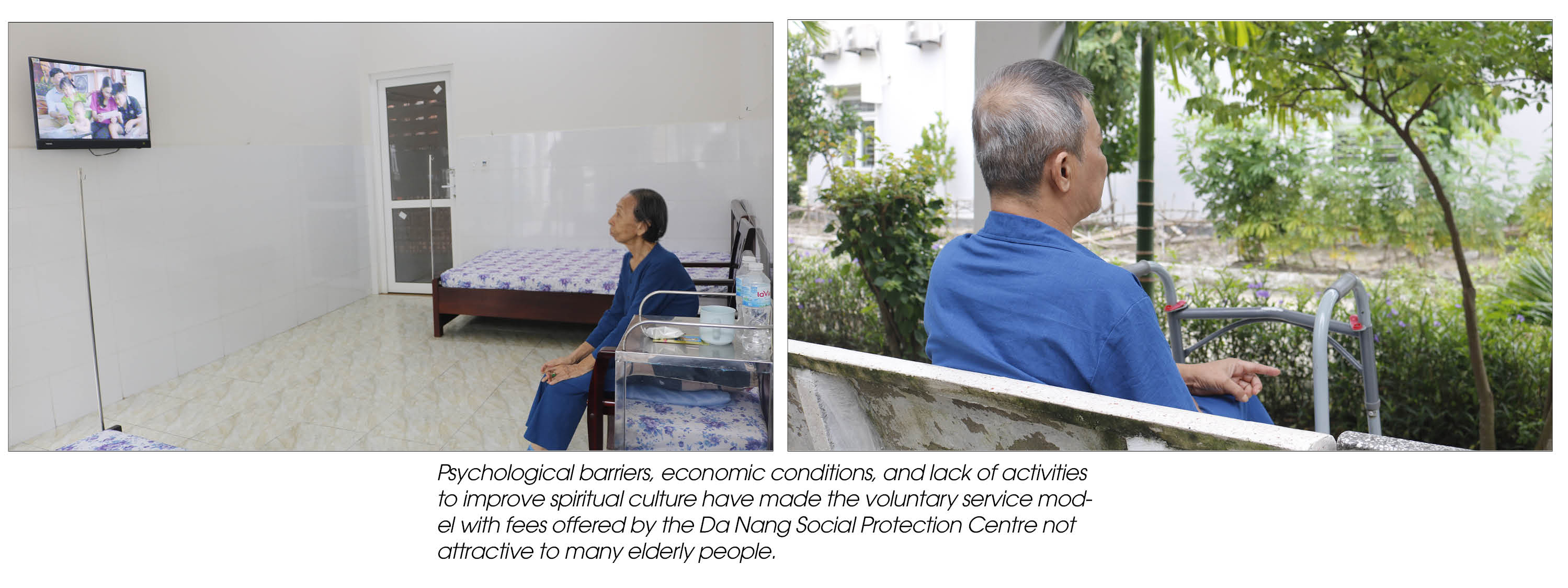 |
Ms. Nguyen Thi Ha, the owner of the facility, said that each customer has a separate care plan suitable for their health condition. Depending on the health condition of the elderly, the centre will classify services from 0-4 priced at between about VND 10 million - VND 30 million/month.
Despite having many children and grandchildren, Mr. Nguyen Trung Chinh, born in 1934, residing in Da Nang, still decided to enjoy his old age at the Thien Tam An Nursing Centre. He has so far lived at the centre for more than 2 years. His children and grandchildren often visit him on weekends and public holidays.
At the centre, Mr. Chinh pays about VND 14 million per month for services including nutritious meals, health care, and a 22m2 VIP room with a bathroom and balcony, and some other amenities)
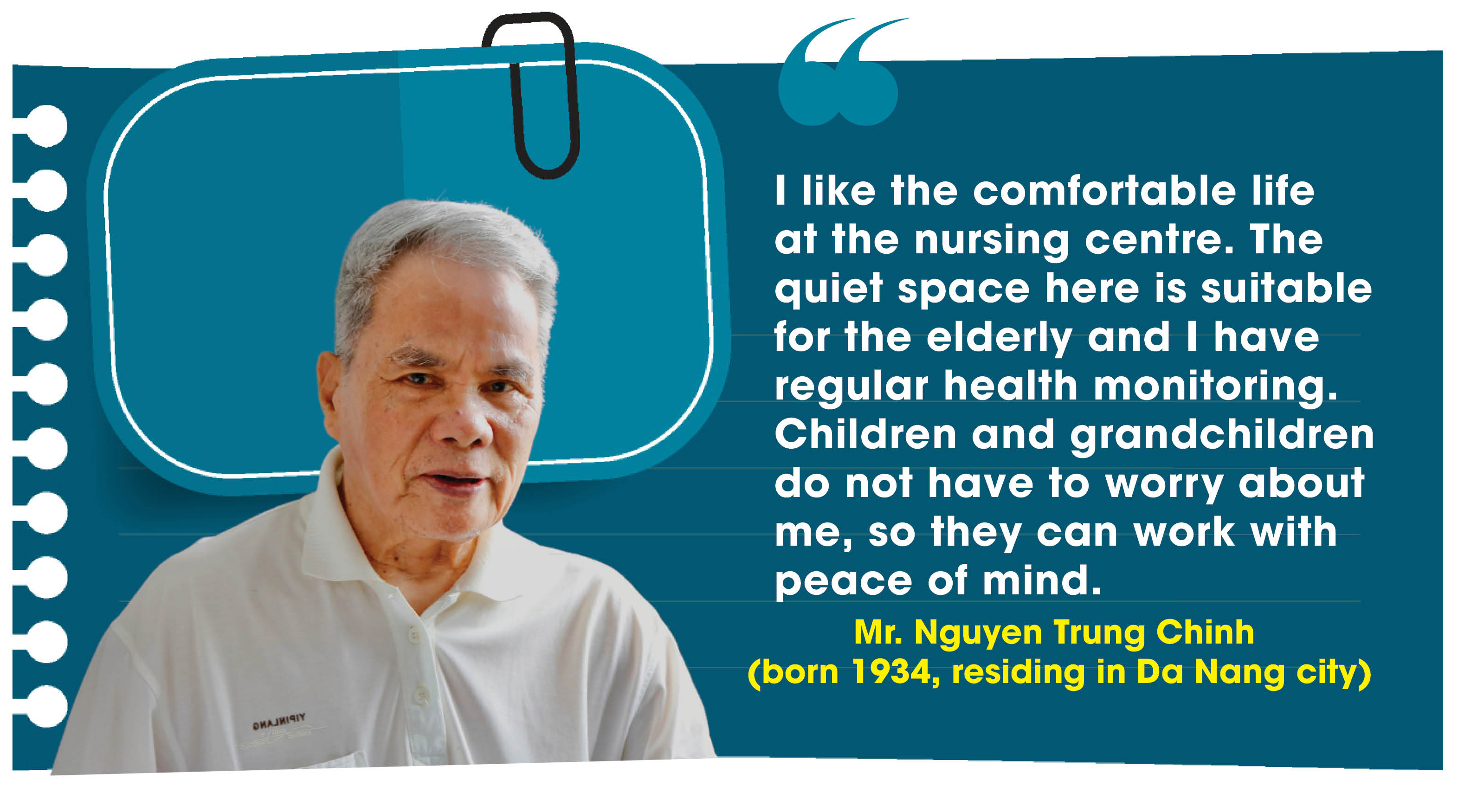 |
.Sharing about his decision to live in a nursing centre, Mr. Chinh said that he had planned to live here for a long time when he had the opportunity to visit nursing home models in Ho Chi Minh City. Therefore, when he was still of working age, he set aside a portion of his income for savings in order to prepare for a life when he was old and not dependent on his children and grandchildren.
According to Mr. Chinh, many of his friends and other elderly people also want to live in nursing homes. However, the high level of service is still a big obstacle for them.
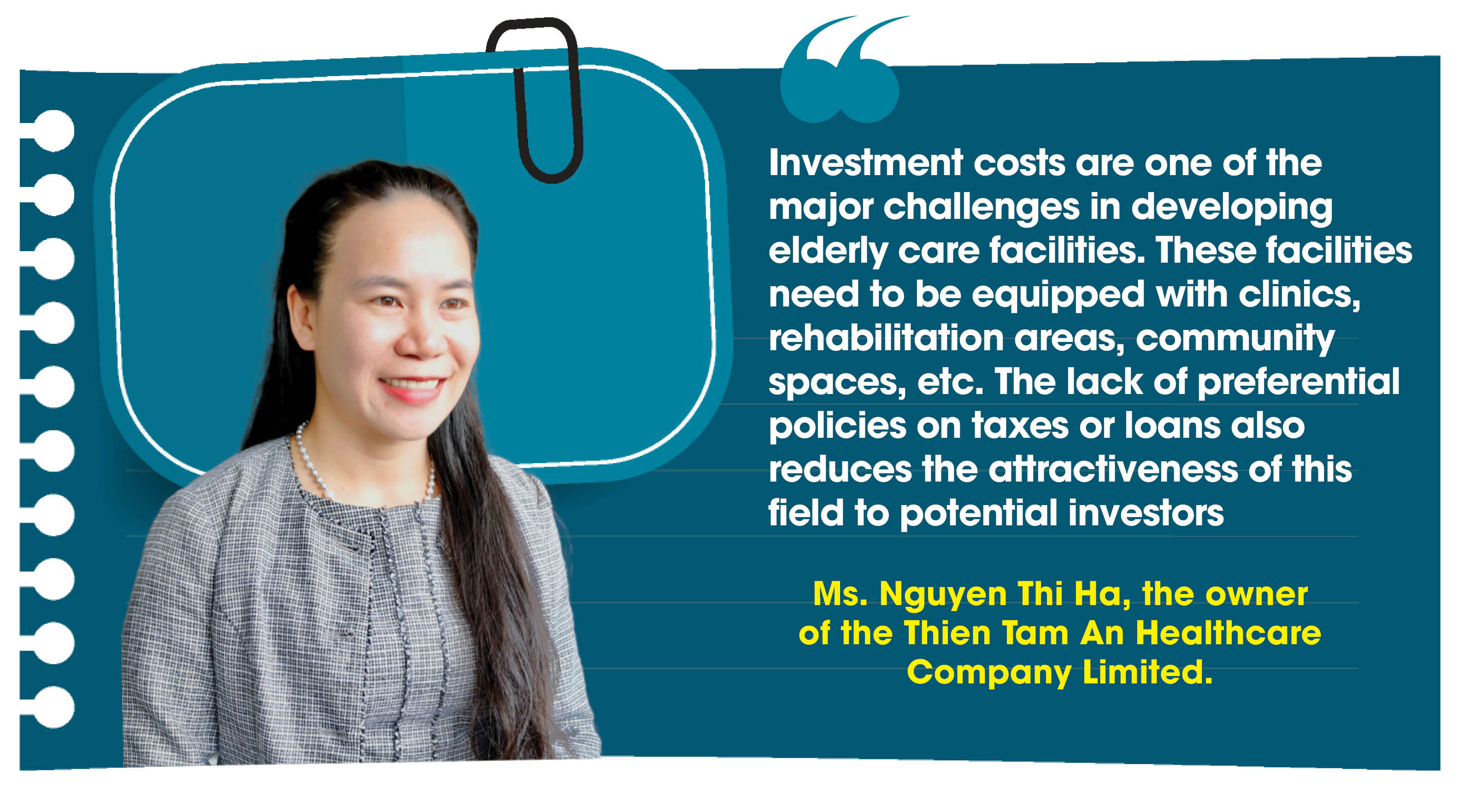 |
Ms. Nguyen Thi Ha, the owner of the Thien Tam An Healthcare Co., Ltd, said that during the process of building and developing the facility, she encountered many difficulties. The initial investment cost for facilities and medical equipment is 30-40% higher than other types of businesses. The cost of training a team of professional care staff also accounts for about 20-25% of the facility's total annual budget, not to mention other monthly operating costs. Up to now, despite operating for more than 2 years, the facility has yet to make a profit.
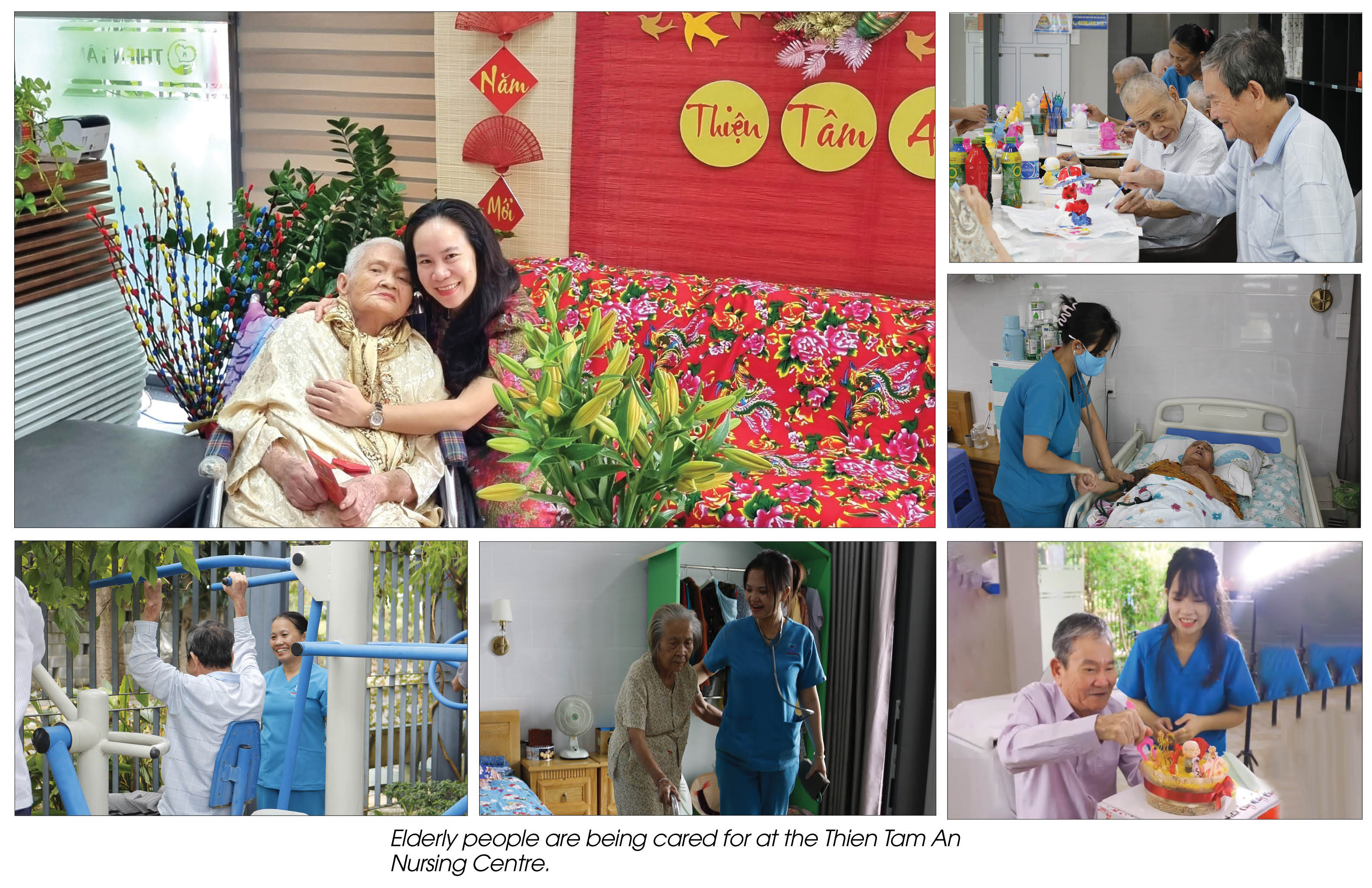 |
Due to the high initial investment costs, the service prices at non-public healthcare facilities are high, making it inaccessible to many low- and middle-income families.
In addition, the legal regulations related to this field are not complete. There is a lack of a clear legal framework on operating standards, rights of the elderly as well as the responsibilities of care facilities. At the same time, the city is facing a significant shortage of human resources, both in quantity and quality. Most staff have not been trained in-depth in elderly healthcare, especially skills in handling situations related to chronic diseases, elderly psychology or rehabilitation, etc.
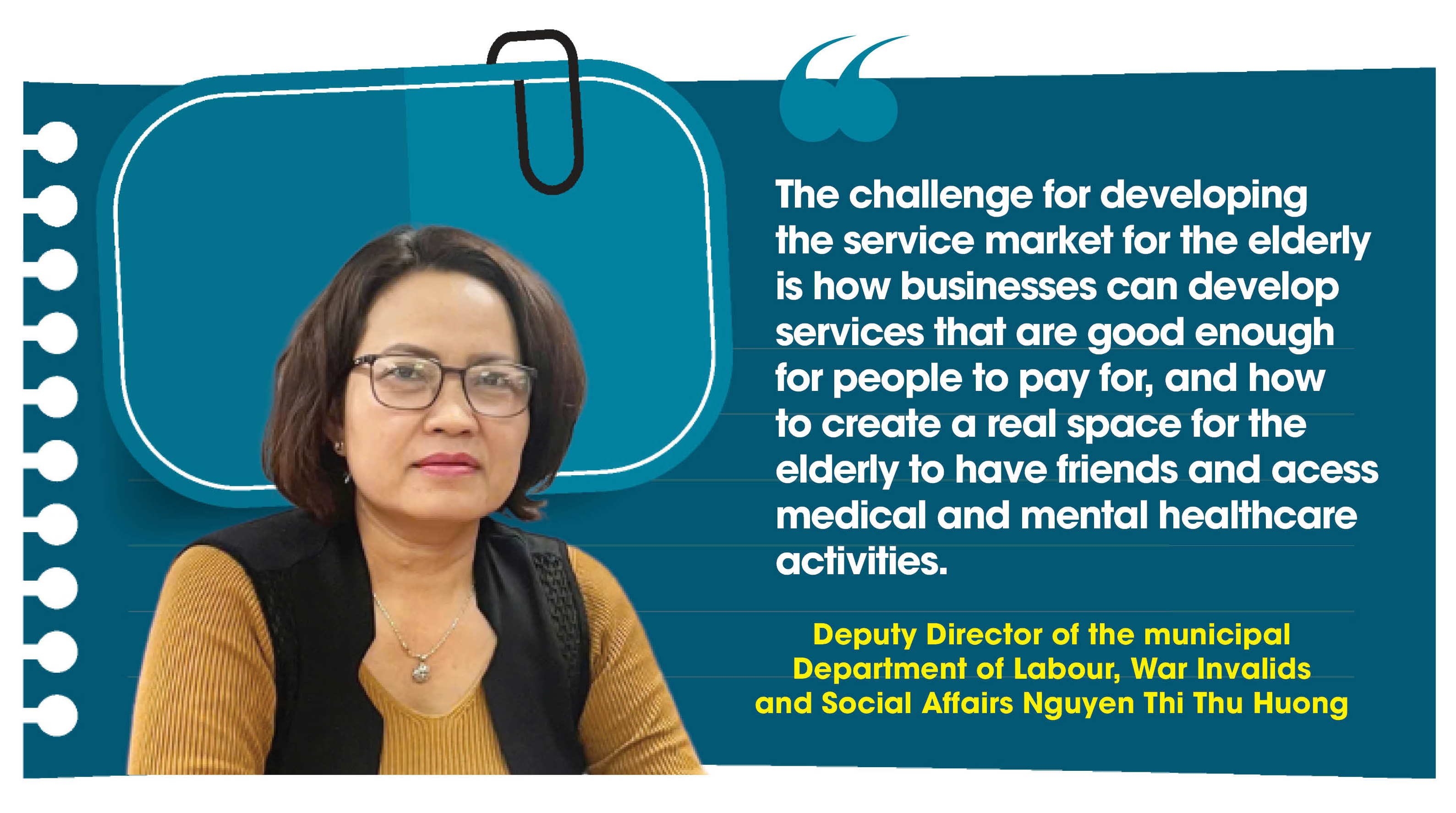 |
Having spent many years developing the field of elderly care, according to Ms. Nguyen Thi Ha, to develop nursing homes in Da Nang, it is necessary to implement synchronous solutions such as increasing policy support, and encouraging investment from both the public and private sectors through incentives on land, taxes and loans. At the same time, it is necessary to provide in-depth training for human resources with expertise in elderly care, including nurses and medical staff, to ensure service quality. Upgrading modern facilities in combination with the application of technology will help optimise elderly care. Also, the importance should be attached to promoting communication to change public awareness, and encouraging families to consider nursing homes as a professional, humane and appropriate care option in modern society.
“To attract the elderly to use the service, nursing home models must not only meet the needs of accommodation and daily activities, but also have plans to improve spiritual life, and build green spaces suitable for the elderly. Moreover, it is possible to mobilise and attract the younger generations to interact and talk with the elderly, not only to help the elderly be happy and excited, but also to help generations of the country connect with each other” said Ms. Ha.
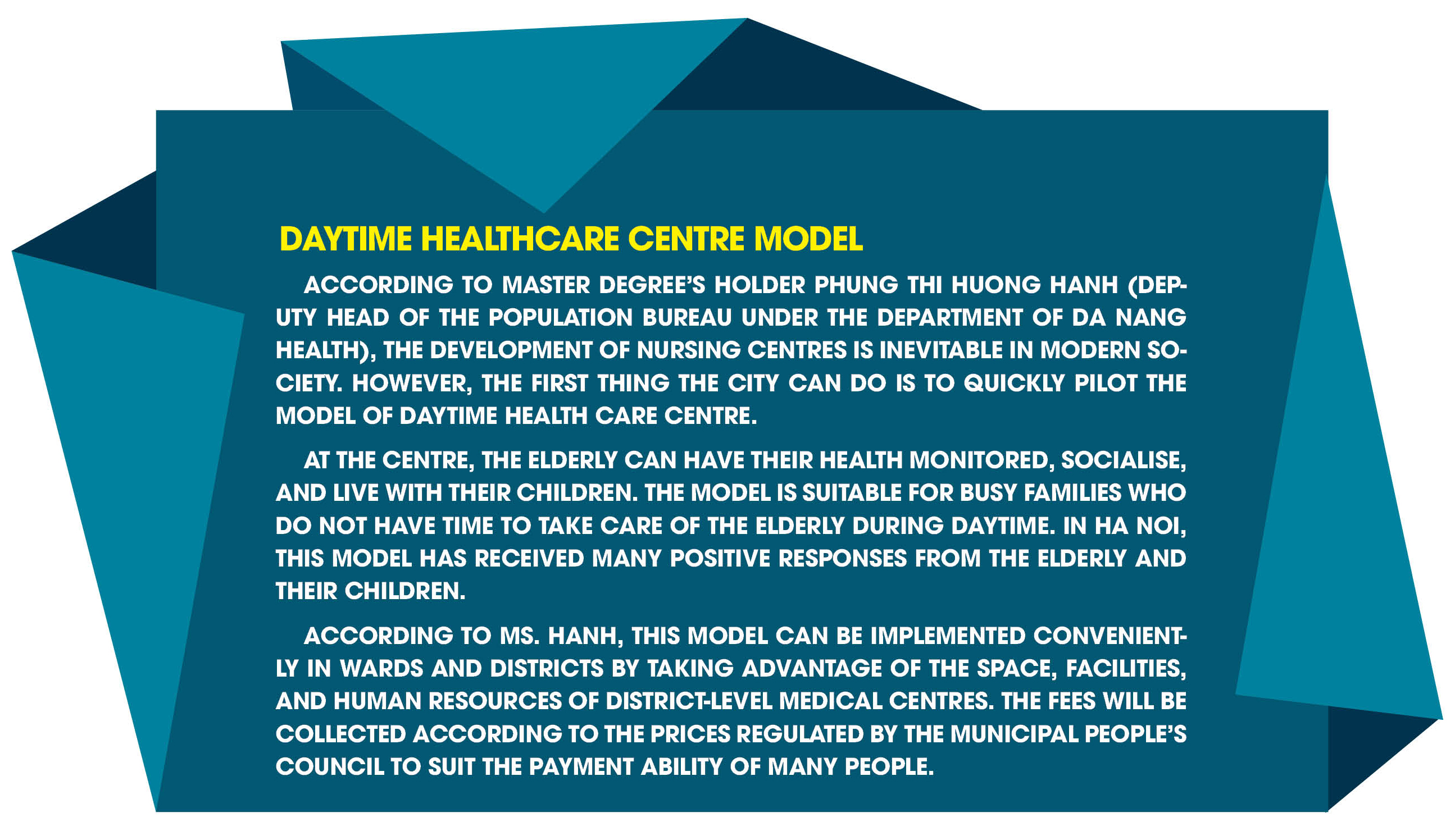 |
Deputy Director of the Da Nang Department of Labour, War Invalids and Social Affairs Nguyen Thi Thu Huong said that the city has paid special attention to the healthcare activities for the elderly for many years. In the coming time, the development of elderly care facilities is being planned by the Department and the city. Land has been allocated and is being assigned to sectors to call for investment in building nursing centres to care for and nurtur the elderly.
Developing elderly care facilities not only meets social needs but is also a manifestation of a humane society that values the contributions of a generation dedicated to the country. With the advantage of a peaceful and safe environment, gentle and friendly people, and a modern, highly specialised and increasingly upgraded healthcare system, Da Nang has great potential to become a pioneer city in elderly care in the central region in particular and Viet Nam in general.
Making by THU DUYEN - BAO LAM - THANH HUYEN - PHUONG MINH
Translating by MAI DUNG



